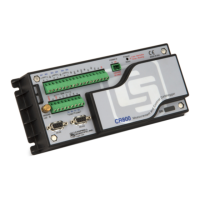Section 7. Installation
Scan(5,Sec,1,0)
'Measure reference temperature
PanelTemp(PTemp_C,250)
'Measure three thermocouples and scale each. Scaling factors from the scaling array
'are applied to each measurement because the syntax uses an argument of 3 in the Reps
'parameter of the TCDiff() instruction and scaling variable arrays as arguments in the
'Multiplier and Offset parameters.
TCDiff(Temp_C(), 3, mV2_5C,1,TypeT,PTemp_C,True,0,250,Mult(),Offset())
CallTable(Min_5)
NextScan
7.7.1.7 Signatures: Example Programs
A program signature is a unique integer calculated from all characters in a given
set of code. When a character changes, the signature changes. Adding
signatures to stored data allows system administrators to track program changes
and data quality. The following program signatures are available.
• text signature
• binary-runtime signature
• executable-code signatures
7.7.1.7.1 Text Signature
The text signature is the most-widely used. It is calculated from all text in a
program including blank lines and comments. It is found in ProgSignature field
of the Status table. See CRBasic example Program Signatures
(p. 180).
7.7.1.7.2 Binary Runtime Signature
The binary runtime signature is calculated only from program code — not from
comments or blank lines. See CRBasic example Program Signatures
(p. 180).
7.7.1.7.3 Executable Code Signatures
Executable code signatures allow signatures to be calculated on discrete sections
of code that resides between the BeginProg and EndProg instructions. See
CRBasic example Program Signatures
(p. 180).

